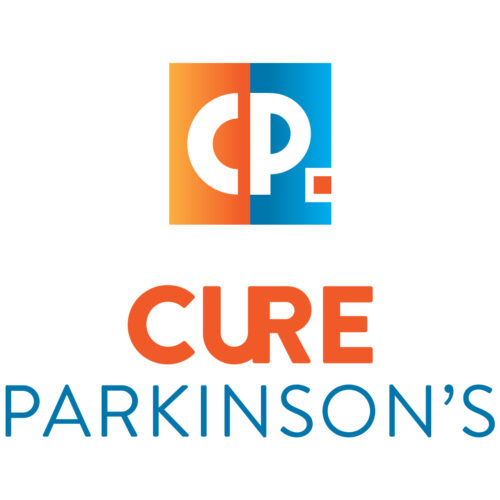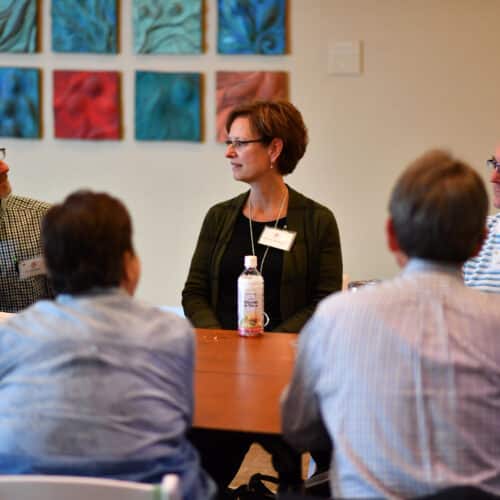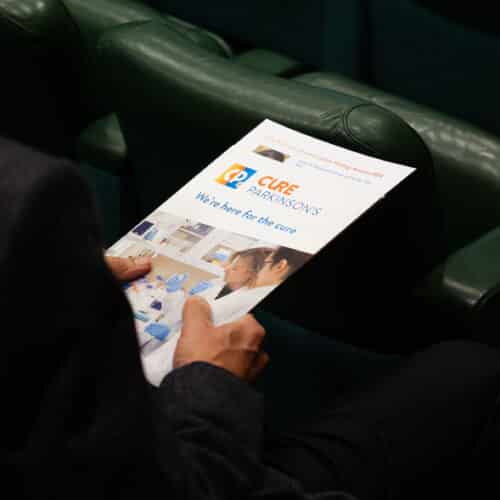EJS ACT-PD, the world’s largest clinical trial for Parkinson’s, is now recruiting
Cure Parkinson’s is excited to announce that the first multi-arm multi-stage clinical trial platform for Parkinson’s in the UK – EJS ACT-PD – is underway, with recruitment now open to people with Parkinson’s.
The Edmond J. Safra Accelerating Clinical Trials for Parkinson’s Disease (EJS ACT-PD) platform aims to transform the way Parkinson’s clinical trials are conducted in the UK. As a multi-arm, multi-stage (MAMS) trial platform, EJS ACT-PD will evaluate several potentially disease-modifying treatments in parallel against a shared placebo (dummy drug) group, accelerating the search for effective treatments by testing more drugs faster and more efficiently than ever before.
What are MAMS platforms?
Traditionally, clinical trials have involved the testing of a single drug against a single placebo (dummy drug) group. This is a time-consuming, slow, and expensive process, which must be redone each time researchers want to test a new drug. It is comparable to building a football stadium, playing a single game, and then dismantling the stadium, only to restart the process for each trial.
A multi-arm, multi-stage (MAMS) platform is a clinical trial model that involves testing multiple treatment groups against one placebo. This allows several drugs to be tested in the time it would usually take to test one. This accelerates the progression of therapies through the drug development pipeline. MAMS platforms are also adaptive, allowing new treatments to be added or swapped in as others conclude or do not show positive findings during interim evaluations. This flexibility effectively speeds up the trial process, not only by enabling multiple treatments to be tested simultaneously, but also by providing the infrastructure necessary to support new trials and facilitate continuous transitions between phases of clinical testing.
Learn more about MAMS platforms in this webinar.
Watch our explainer video
The development of this platform has been a huge achievement. For the past 5 years, the EJS ACT-PD consortium has brought together researchers and charities, including Cure Parkinson’s, alongside people with Parkinson’s to design an accessible trial that delivers meaningful results to people with Parkinson’s. Ultimately, the launch of the platform represents a leap forward in our goal of finding a therapy able to slow, stop, or reverse Parkinson’s progression.
The first phase of the trial will involve 1,600 people living with Parkinson’s, which means more opportunity than ever before for People with Parkinson’s to participate in clinical research.
Learn more about EJS ACT-PD at our upcoming Research Update Meeting
Georgia Mills, Research Project Manager for EJS ACT-PD will be presenting at our Autumn Research Update Meeting – a free, hybrid event on 10 November.
Why is EJS ACT-PD a game-changer?
Led by Professor Tom Foltynie from University College London and Professor Camille Carroll from Newcastle University, EJS ACT-PD represents the first MAMS platform for Parkinson’s in the UK. This programme is a £26 million investment in Parkinson’s. Initially, it will test two potentially disease-modifying therapies – telmisartan and terazosin – against a shared placebo (dummy drug) group. In 2026, the team will introduce a third treatment arm with ursodeoxycholic acid (UDCA). All three drugs are repurposed from other medical conditions and were previously evaluated by our International Linked Clinical Trials (iLCT) committee – a group of Parkinson’s experts who meet annually to rank and prioritise promising therapies for clinical trial.
These therapies will be assessed for their ability to slow Parkinson’s progression. In addition, participants will have the opportunity to join a number of sub-studies. The aim of the sub-studies varies from improving symptom monitoring through wearable gait monitors to identifying better biological measures of progression.
Thanks to this innovative clinical trial programme, more people with Parkinson’s than ever before will have the opportunity to participate in disease-modifying research. We’re proud to have played a key role in the collaborative effort, bringing partner funders Van Andel Institute, The Gatsby Charitable Foundation, with The John Black Charitable Foundation and our own donors together to realise this project. The start of recruitment to the EJS ACT-PD trial is an enormous achievement for everyone involved and offers real hope to people living with Parkinson’s and their families.
Helen Matthews, CEO, Cure Parkinson’s
Testing multiple treatments is just one way the platform accelerates the clinical trial process. To gain regulatory approval, new treatments must pass through several phases of clinical trials, with each phase having a specific focus. One of the challenges for drug development is the transition from phase 2 to phase 3; in 2023, there were only three phase 3 trials for potentially disease-modifying therapies. As a late-stage platform, EJS ACT-PD will facilitate the movement of promising treatments from phase 2 to 3 without needing to restart the trial process.
It is really exciting to see such a large clinical trial platform that will be testing multiple agents at the same time. We have the option to take out drugs that aren’t working and replace them with alternatives. Rather than the stop-start nature of current trials, this new format will allow for the continuous testing of new therapies that could potentially slow, stop or reverse Parkinson’s.
Dr Simon Stott, Director of Research, Cure Parkinson’s
How do I get involved?
A major aim of the EJS ACT-PD consortium was to design a trial that is accessible to and representative of all people with Parkinson’s. As such, EJS ACT-PD will be opening over 40 sites across England, Wales, Scotland, and Northern Ireland. Sites in London and Newcastle are already open, and the team anticipate the remaining sites opening over the next six months.
Participants will be given the option to attend their study visits virtually instead of in-clinic. Additionally, medications will be delivered directly to participants’ homes, further reducing the travel burden. These decisions were directly influenced by the people with Parkinson’s who participated in the consortium’s Patient and Public Involvement and Engagement (PPIE) working group. Members of this group also attended meetings of the other working groups, ensuring that the patient voice was represented at every stage of the process.
Having Parkinson’s can be frightening and lonely; it’s easy to lose hope. We need a treatment to slow or stop the progression of this disease, urgently. This trials platform has the potential to knock years off the time this will take, so I really hope it gives people with Parkinson’s a good reason to stay positive.
Katy O’Malley, living with Parkinson’s and member of the EJS ACT-PD Patient and Public Involvement and Engagement (PPIE) working group
Frequently asked questions
Cure Parkinson’s and Parkinson’s UK have put together an FAQ on the trial.
Download full FAQ
This clinical trial is led by University College London and is funded by a Medical Research Council (MRC) and National Institute for Health and Care Research (NIHR) partnership, Cure Parkinson’s, The Michael J Fox Foundation, Parkinson’s UK, The John Black Charitable Foundation, The Gatsby Charitable Foundation and Van Andel Institute.




